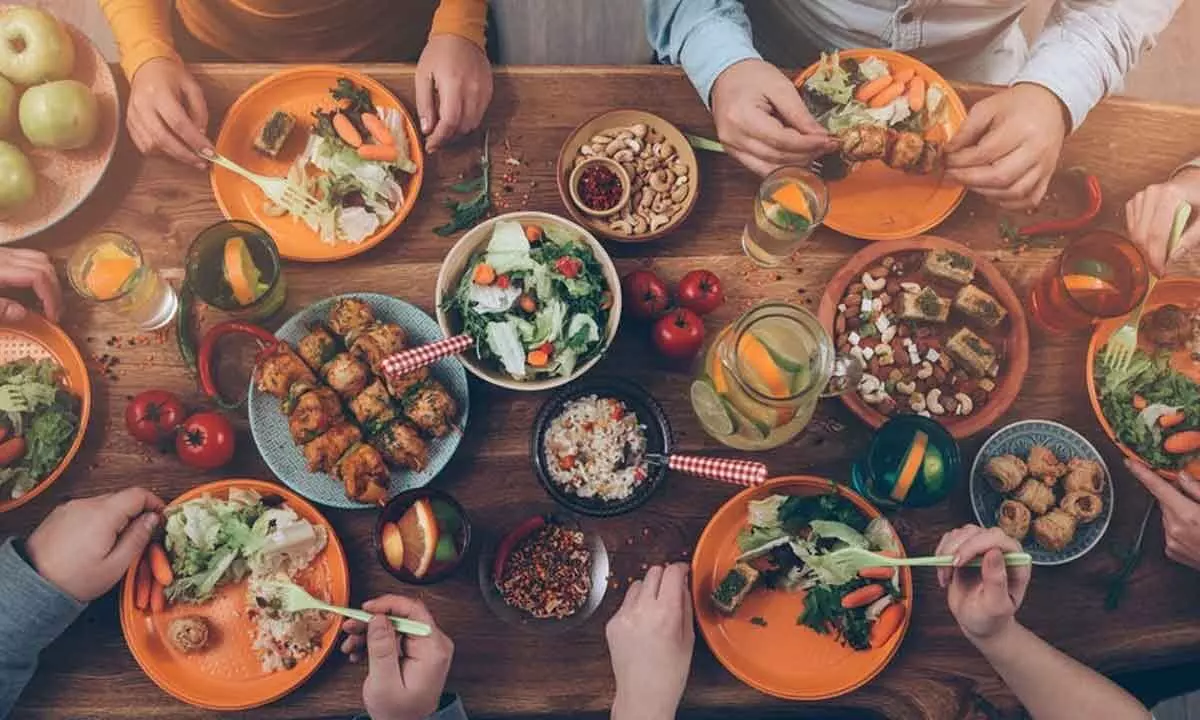Gastronomic tourism: Menu becoming the new travel map
Gastronomy tourism, which is expected to accelerate the local economic cycle and enhance the sustainability of tourist destinations through food, is truly a way to travel suited to the times
image for illustrative purpose

The global culinary tourism market is expected to grow by $126.28 billion during 2023-2027, accelerating at a CAGR of 17.45 per cent during the forecast period.
Food and beverage is the largest area of tourism employment, accounting for one-third of visitor spending. It's also one of the fastest growing segments of the tourism industry. In fact, tourism employs one in 10 people in the world, generates 10 per cent of global gross domestic product and is one of the fastest growing global industries. In 2017, many destinations experienced their best tourism year - including Toronto, where visitors spent $8.8 billion in the local economy.
As tourism restarts in many parts of the world, it is now more important than ever that we reflect and act to build a more sustainable sector where local traditions and culture are respected, valued and empowered.
In many countries around the world, gastronomy has become a strategic sector that contributes to the generation of wealth and employment by creating value throughout its entire chain - from producing quality foods and processing these foods to the hotel and catering industry and tourism. Moreover, gastronomy helps to promote and boost the country's brand, thus strengthening a region's image and international projection.
Food is a vital tourism resource that attracts travellers. The linkage between food and tourism revitalizes local economies by deepening the understanding of the local culture and creating spill-over effects into various industries. There is a growing interest in "sustainable tourism" in Japan and worldwide, considering the region's current and future economic, social, and environmental impact. Gastronomy tourism, which is expected to accelerate the local economic cycle and enhance the sustainability of tourist destinations through food, is truly a way to travel suited to the times.
Food has always been an important component of the tourist experience. Tourists eat to survive, but they also consume to discover the place and the intrinsic environments of the visited region. Arousing all senses, food and drink items and the practice of gastronomy include an exhaustive amount of information of significance for both personal well-being and for socializing with others. Gastronomy urges individuals to get profoundly involved, and in recent years this is cleverly exploited in new food related tourism attractions such as food festivals and wine tasting trails, cooking experiences and competitions, open fields, farms and factories, etc. Gastronomy is much more than fine dining.
Gastronomic tourism is becoming a real player in the tourism market, and food and wine related services and events attract greater numbers of tourists each year. Food links into local and regional economies in multifaceted value chains, which includes agriculture, fisheries, food producers, a variety of media, entertainment, learning, research and numerous service providers. As a consequence, the regeneration of rural economics, the discovery of local identity and the re-valuing of heritage and tradition can all flow from growing, processing, marketing, distributing eating and enjoying food and beverages. Food and gastronomy is however, also implicated in the process of globalization, typified by parallel trends: frantic small scale food diversification and massive gastronomic convergence. Other interesting contrasts consistently exist between authenticity and innovation. Increasingly, food and food consumption are seen as key elements in a better more sustainable world, where the interlinkages with tourism need to be further explored.
"We are very happy and very proud of this label" affirmed President of Hauts-de-France Tourism and Regional Adviser delegated to Tourism, Daniel Fasquelle, while highlighting how the region already had all it takes when it comes to great dishes, products and chefs. The European Region of Gastronomy award "will serve as a sort of accelerator to mobilise all our energies, to work faster and stronger in a direction that we had already taken" added Fasquelle, who also expects tangible benefits for Hauts-de-France in terms of tourism, attractiveness, employment and public health.
From visiting different destinations for the purpose of tasting the local cuisine to entire stays where you become a part of the kitchen, visit local markets or farms and learn to cook new dishes – this form of tourism offers multiple ways to whet your appetite.

